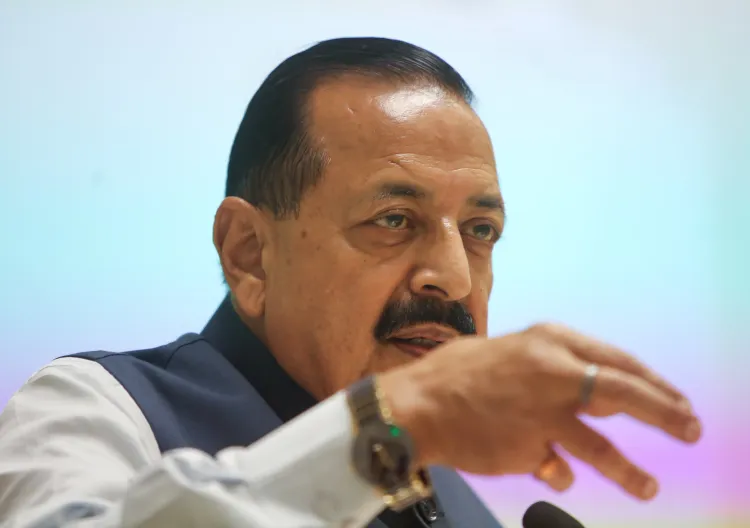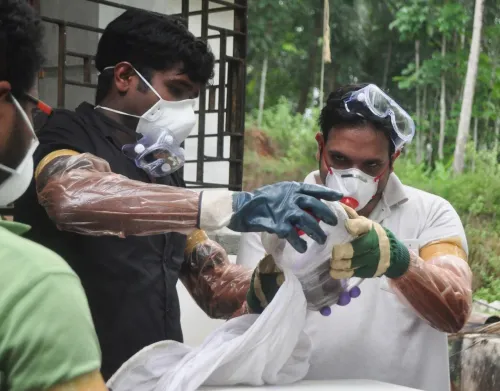How Did 11 Years of Modi Government Redefine India's Development Narrative?

Synopsis
Key Takeaways
- Revolutionary reforms like GST and Digital India have reshaped India's economy.
- Innovation in biotechnology has positioned India as a global tech hub.
- The JAM trinity enhances financial inclusivity.
- Progressive social reforms empower women.
- India is a frontrunner in climate action and sustainability.
New Delhi, June 5 (NationPress) - Through decisive actions, forward-thinking reforms, and transformative governance, the administration led by Prime Minister Narendra Modi has significantly reshaped India’s development narrative over the past 11 years, reinstating public trust in the system, asserted Dr. Jitendra Singh, the Union Minister of State (Independent Charge) for Science and Technology, on Thursday.
Singh remarked that initiatives such as the introduction of GST, the promotion of Digital India, and the liberalization of vital sectors like space and atomic energy for private participation, have been pivotal in prioritizing the nation’s long-term interests and raising the bar for decision-making.
“Every initiative is fueled by the vision of a self-reliant and globally competitive India,” he stated during a media interview.
Moreover, by empowering the Department of Biotechnology (DBT) to encourage innovation, particularly in vaccine production, genetic studies, and bio-entrepreneurship, the Modi administration has positioned India as an emerging global technology center.
The seamless integration of traditional governance objectives with contemporary technologies has marked another hallmark of the Modi era, the Minister emphasized.
“Under PM Modi’s guidance, fields such as space, atomic energy, and biotechnology have received unparalleled support. The international acknowledgment India enjoys today in these domains is a direct outcome of sustained backing and visionary policies,” he noted.
Pointing to space technology—previously limited to rocket development—which now enhances telemedicine, agriculture, and educational services, Singh emphasized that “science is no longer confined to laboratories.” Applications like agricultural weather forecasting and online learning exemplify how space technology is enhancing everyday life.
The Minister also underscored transformative initiatives like the JAM (Jan Dhan-Aadhaar-Mobile) trinity, the Swachh Bharat Mission, and Special Campaign 4.0.
Advancing social security, the Modi administration has introduced progressive pension reforms benefiting women.
Family pensions will now extend to childless widows even after remarriage, and divorced daughters are entitled to family pensions if divorce proceedings were initiated while their parents were alive, Singh stated, adding that the forthcoming tenure “will focus on accelerating the achievements of the past decade.”
In addition, the Science and Technology Minister reaffirmed India’s prominent role in global climate action, urging both citizens and institutions to adopt sustainable practices as a national obligation.
He emphasized that India’s approach to climate resilience is anchored in both scientific innovation and public involvement.
“The Earth provides us with everything—clean air, fresh water, and fertile land. However, we often take these gifts for granted,” Singh remarked during a virtual event organized by the Department of Science and Technology (DST) on World Environment Day.
Addressing the escalating threats of pollution, deforestation, and climate change, he stressed that tackling these challenges must be a collective responsibility, driven by behavioral changes and lifestyle movements like Mission LiFE—Lifestyle for Environment.










